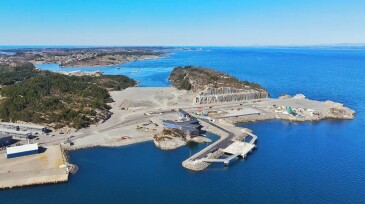decarbonization
-
Among the outcomes from COP27 that SPE will be discussing in future meetings and publications are the participation of the oil industry in the conference, decarbonization vs. reduction, and attempts to phase out petroleum. Also, read about how SPE Energy Stream selects and presents live and on-demand programming.
-
Equinor has submitted a plan for development and operations with Norwegian authorities that would add gas compression and electrification to the Hammerfest LNG plant.
-
A recently signed memorandum of understanding is designed to let the two companies work together on digital transformation and decarbonization.
-
The CO2 capture capacity of all CCS facilities under development increased 44% over the past 12 months, bringing the total capacity of those projects to 244 mtpa of CO2.
-
In following some of the upstream industry's other big firms, the legacy oilfield service company believes the time for a change has come.
-
Occidental Petroleum is considered one of the upstream industry’s most dynamic companies after making major investments to boost oil and gas production while also scaling up low-carbon technologies.
-
The two companies have agreed to develop a carbon capture and storage supply chain to funnel carbon dioxide produced by German industry into storage deep beneath the Norwegian Continental Shelf.
-
The second plenary session at URTeC this week highlighted the stark reality of both knowns and unknowns oil companies must face in the race to a carbon-free future.
-
The center will develop innovations for renewable-energy technology and the low-carbon future and will bring together and support research of faculty in the energy, materials science, data science, and artificial-intelligence fields.
-
The supermajor and service company that have long been partners on oil and gas projects said they are exploring new models to fit the energy transition. They also separately announced this week new plans to expand into the hydrogen market.









